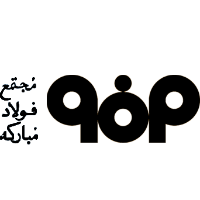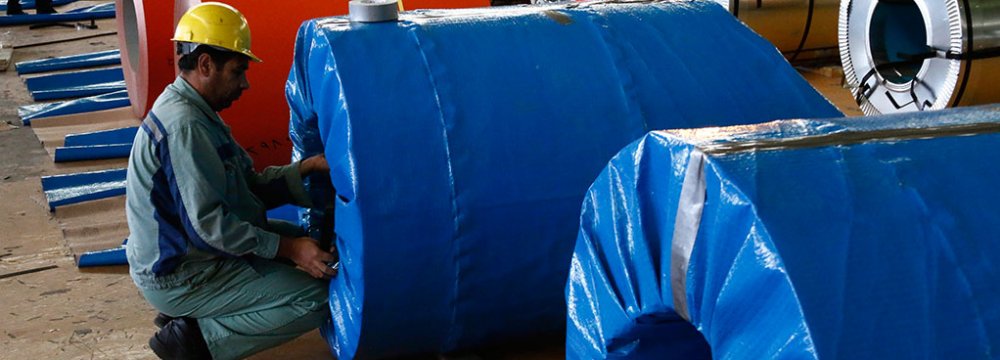
MSC’s Exports Drop as Domestic Sales Jump


Mahmoud Akbari attributed the higher sales to the higher number of water transfer projects initiated during last year, the relative flourishing of car production and the Ministry of Industries, Mining and Trade’s policies to prioritize meeting the demand of steel pipe and profile manufacturers for flat steel.
Moving toward production of high-value added goods has also been one of the company’s main strategies. Overall, MSC produced 1.42 million tons of these products such as API steel plates used in oil and gas industries, construction-grade steel plates, IF plates and micro-alloyed steel used in auto industry.
About 28% of MSC’s products went to construction pipe and profile manufacturers, 15% to automakers, steel and other downstream metal sectors, fluid transfer tube producers and 8% to heavy equipment manufacturers.
MSC’s exports last year, however, were down 13% compared to the year before, standing at 1.55 million tons.
The main hurdle to MSC export plans last year was a dispute with the Construction Pipe and Profile Manufacturers Association. The association accused MSC of refusing to provide the sector with their needed feedstock of flat steel, overcharging local buyers and prioritizing exports.
The dispute dragged on for months with some consumers voicing the same complaint, until the Ministry of Industries, Mining and Trade officially ordered MSC to shift its focus to the local market.
According to Akbari, the company expects to sell over 7 million tons of MSC’s steel products as well as 1.4 tons of flats and 570,000 tons of coated steel made by its subsidiaries by the end of the current fiscal year.
According to MSC’s financial manager, Amir Hossein Naderi, the company’s net profit this year is expected to rise 53% to reach 18.9 trillion rials ($499.7 million). Rising steel prices and the commodity’s positive outlook are the main reasons behind his bullish forecast.
Along with its subsidiaries, MSC is the largest flat steel producer in the Middle East and North Africa region and Iran’s largest steelmaker, accounting for 1% of Iran’s GDP.
According to Akbari, since MSC was founded in the early 90s, it has produced about 91.3 million tons of steel, 81% of which have been supplied to the domestic market.
The company accounts for approximately 50% of Iran’s total steel output and holds approximately the same share in domestic flat steel consumption.
MSC undertook several expansion plans in 2016, including a $143.4 million investment in setting up a continuous casting machine back in November. The new production line added 1.8 million tons to MSC’s annual steel production capacity and raised it to 10.3 million.
Mobarakeh is also going to cut down on its production costs this year with the influx of cheap local pellets, especially made in its own plant at Sangan in Khorasan Razavi Province.
According to Bourse Press, the government-imposed pellet prices are about 50% less than the $110 per ton quoted by the Chinese.


Trump weighs using $2 billion in CHIPS Act funding for critical minerals

Codelco cuts 2025 copper forecast after El Teniente mine collapse

Electra converts debt, launches $30M raise to jumpstart stalled cobalt refinery

Barrick’s Reko Diq in line for $410M ADB backing

Abcourt readies Sleeping Giant mill to pour first gold since 2014

Nevada army depot to serve as base for first US strategic minerals stockpile

SQM boosts lithium supply plans as prices flick higher

Viridis unveils 200Mt initial reserve for Brazil rare earth project

Tailings could meet much of US critical mineral demand – study

Kyrgyzstan kicks off underground gold mining at Kumtor

Kyrgyzstan kicks off underground gold mining at Kumtor

KoBold Metals granted lithium exploration rights in Congo

Freeport Indonesia to wrap up Gresik plant repairs by early September

Energy Fuels soars on Vulcan Elements partnership

Northern Dynasty sticks to proposal in battle to lift Pebble mine veto

Giustra-backed mining firm teams up with informal miners in Colombia

Critical Metals signs agreement to supply rare earth to US government-funded facility

China extends rare earth controls to imported material

Galan Lithium proceeds with $13M financing for Argentina project

Kyrgyzstan kicks off underground gold mining at Kumtor

Freeport Indonesia to wrap up Gresik plant repairs by early September

Energy Fuels soars on Vulcan Elements partnership

Northern Dynasty sticks to proposal in battle to lift Pebble mine veto

Giustra-backed mining firm teams up with informal miners in Colombia

Critical Metals signs agreement to supply rare earth to US government-funded facility

China extends rare earth controls to imported material

Galan Lithium proceeds with $13M financing for Argentina project

Silver price touches $39 as market weighs rate cut outlook

















